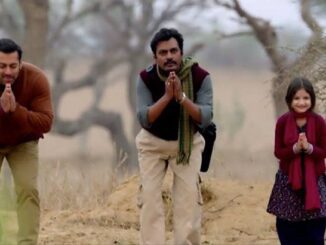
Actress and environmental activist Dia Mirza has once again used her voice to highlight the urgent need for sustainable development and ecological awareness. In a recent statement, the former Miss Asia Pacific turned environmental crusader made a passionate appeal for the creation of more biodiversity parks across India, stressing their importance not just for nature conservation, but also for the holistic development of children.
Speaking at an event focused on environmental education and urban green spaces, Dia emphasized how biodiversity parks can play a transformative role in shaping the minds and hearts of the younger generation. “Children today are growing up surrounded by screens and concrete,” she said. “We need to create more natural spaces where they can connect with the earth, learn about ecosystems, and develop compassion for all forms of life.”
Dia, who has long been associated with various green causes and serves as a United Nations Environment Programme Goodwill Ambassador, noted that such parks are more than just recreational areas—they are living classrooms. “When children have access to biodiversity-rich spaces, they are not just learning biology or botany. They are learning respect, empathy, and responsibility toward the planet. These are values that will shape them as future citizens.”
Drawing from her own experiences as a mother, Dia spoke about how time spent in nature has deeply impacted her own child’s curiosity and emotional well-being. “I’ve seen first-hand how nature has the power to heal, inspire, and ground children. My son is always happiest when he’s running around barefoot on the grass, chasing butterflies or watching birds. We underestimate how much kids need that.”
She went on to point out that with rapid urbanization, cities are losing green cover at an alarming rate. Concrete jungles are expanding, and natural ecosystems are shrinking. “In many cities, children have never seen a real butterfly or walked through a forest trail. That’s heartbreaking. We must reclaim space for nature in our urban planning, and biodiversity parks are a wonderful way to do that.”
Dia also acknowledged the efforts of several municipal and state governments that have taken steps to develop eco-zones and nature parks, but she believes much more needs to be done—and quickly. “It’s not just about planting trees or creating a green patch. Biodiversity parks should be scientifically designed to preserve local flora and fauna, support pollinators, protect soil and water quality, and function as carbon sinks. They must be treated as critical infrastructure, not optional luxuries.”
In her address, Dia called upon city planners, policymakers, educators, and parents to come together and prioritize the development of such spaces. “This is not a luxury; it’s a necessity. We talk about preparing our children for the future—what kind of future are we preparing them for if we don’t preserve the planet they’ll inherit?”
Environmentalists and child psychologists have supported Dia’s views, with studies showing that regular interaction with nature boosts cognitive development, reduces stress, improves focus, and even enhances academic performance in children.
Wrapping up her address with a hopeful tone, Dia said, “Every child deserves the chance to play under open skies, touch the soil, listen to the rustle of leaves, and marvel at the complexity of a spider’s web. Let’s not take that away from them. Let’s give them the world as it should be—green, wild, and full of wonder.”
Dia Mirza’s consistent and heartfelt advocacy continues to inspire a generation of eco-conscious citizens. Her latest message is a powerful reminder that the road to sustainability begins not just with policy, but with empathy, awareness, and meaningful action at the grassroots level.



